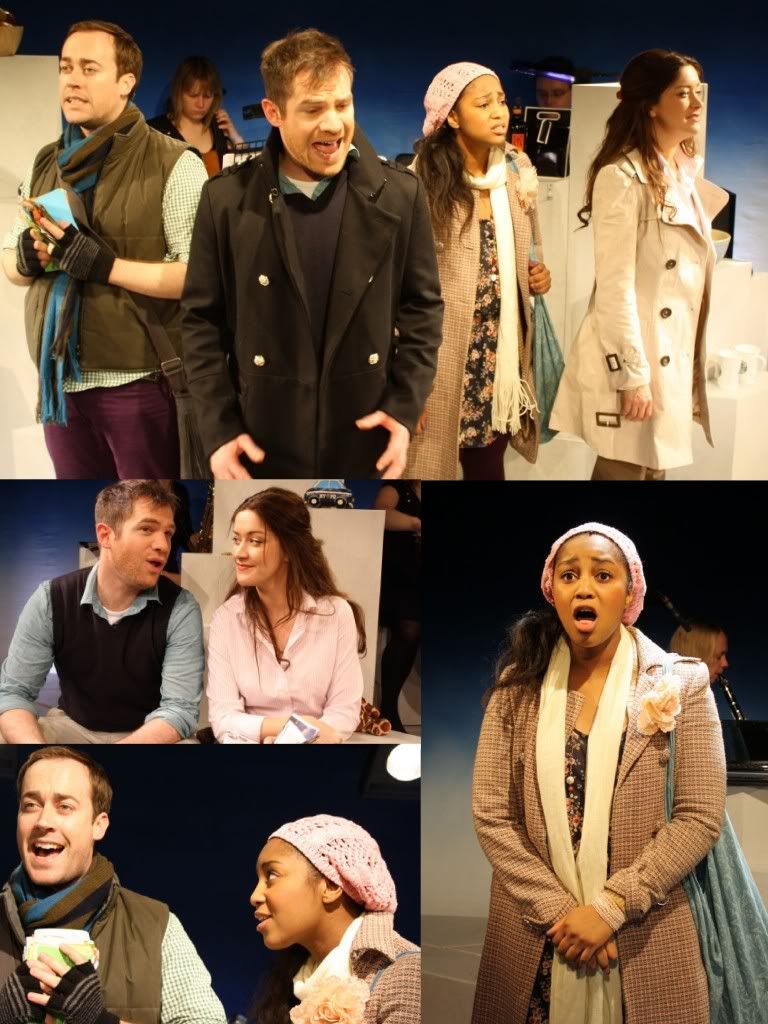I suspect this new musical would have fared better, would have left more of a mark on me, in a month that had contained less really stunning (or, truthfully, utterly maddening) theatre. As it is, it’s fallen into the rather awkward position of being liked (I wouldn’t have hesitated in recommending anyone else who was interested in going to see it) but overshadowed and somewhat forgotten.
Partly this is a problem I’ve had anyway with most of the new musicals I’ve seen recently – the songs, good as they may be, simply refuse to stick in my head (the one notable exception being Matilda which is still buzzing around my head months later). Perhaps this is the nature of the beast and the reason that so many new musicals struggle – they’re up against competitors that have been around years, whose music has seeped into the public conscience. To make matters worse, they rarely get grand openings, large venues, tv spots or soundtracks to change matters. It’s hardly surprising that new musicals tend to struggle in the current climate.
That said, Adam Gwon’s score was definitely pleasing, with some interesting moments – even if the songs are refusing to spring readily to my mind. Calm particularly was excellent, offering an excellent opportunity to shine for Alexia Khadime as Deb – who proved to be something of a show stealer all round, winning the biggest laughs with many of the best lines. I also really liked the feel and imagery provoked in Favourite Places, Hundred-Story City and Sort-of Fairy Tale.
I also really enjoyed Lee William-Davis’ performance as oddball Warren, a nice mix of embarrassed sincerity and hope, and I liked that the musical focused as much on this friendship as it did on the more romantic relationship. Julie Atherton and Daniel Boys who played the other half of the foursome, and were my main draw for checking the musical out, were also both, as always excellent. Though their characters failed to resonate with me particularly and I wasn’t overly invested in their storyline.
I found myself really loving, as well, the use of the Museum of Art as something of a character in it’s own right. It’s use was symptomatic of the way that Gwon uses familiar things to allow nuanced personality traits to emerge and I felt the final scene between Deb and Warren was particularly effective. It was the grander moments for me that felt slightly less like they worked, though I was interested to see one of the ways that 9/11 might work itself into this sort of genre.
As for the more technical side of things, neither the set or the lighting had much impact for me, though both did what they needed to. I was, I have to admit, overly pleased with one scene where Warren throws his leaflets to the city – but then I’m always a sucker for things fluttering down from the rafters (particularly when I get to take them home as souvenirs). I liked, as well, being able to see the small group of versatile musicians that the stage also managed to contain and felt that the simpler arrangements that their numbers restricted them to, benefited the production.
Overall a very enjoyable piece, even if it has ended up a bit overlooked.

No comments:
Post a Comment